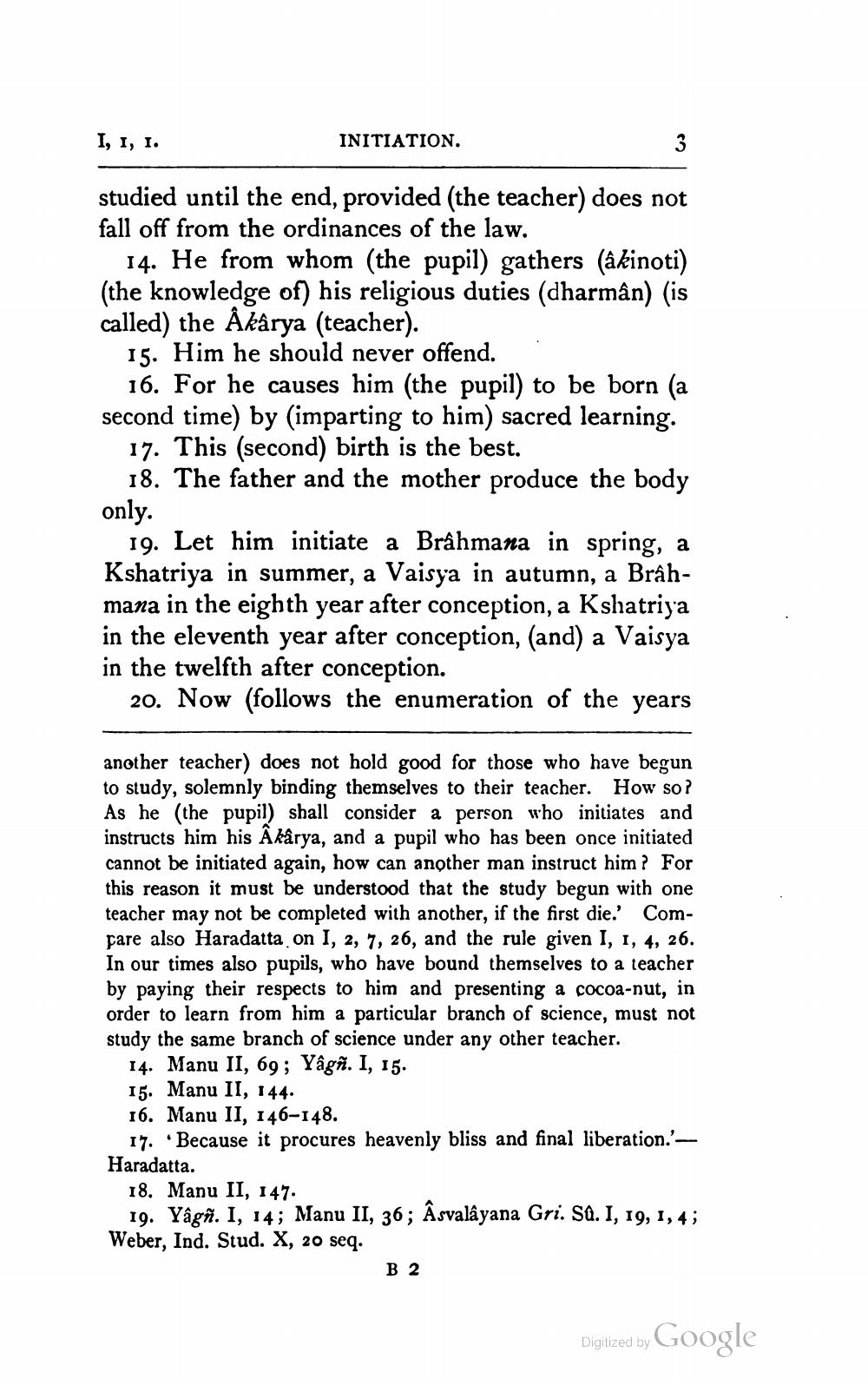________________
I, I, I.
INITIATION.
studied until the end, provided (the teacher) does not fall off from the ordinances of the law.
14. He from whom (the pupil) gathers (âkinoti) (the knowledge of) his religious duties (dharmân) (is called) the Âkârya (teacher).
15. Him he should never offend.
16. For he causes him (the pupil) to be born (a second time) by (imparting to him) sacred learning.
17. This (second) birth is the best.
18. The father and the mother produce the body only.
19. Let him initiate a Brâhmana in spring, a Kshatriya in summer, a Vaisya in autumn, a Brâhmana in the eighth year after conception, a Kshatriya in the eleventh year after conception, (and) a Vaisya in the twelfth after conception.
20. Now (follows the enumeration of the years
another teacher) does not hold good for those who have begun to study, solemnly binding themselves to their teacher. How so? As he (the pupil) shall consider a person who initiates and instructs him his Âkârya, and a pupil who has been once initiated cannot be initiated again, how can another man instruct him? For this reason it must be understood that the study begun with one teacher may not be completed with another, if the first die.' Compare also Haradatta on I, 2, 7, 26, and the rule given I, 1, 4, 26. In our times also pupils, who have bound themselves to a teacher by paying their respects to him and presenting a cocoa-nut, in order to learn from him a particular branch of science, must not study the same branch of science under any other teacher.
14. Manu II, 69; Yâgñ. I, 15.
15. Manu II, 144.
16. Manu II, 146-148.
17. Because it procures heavenly bliss and final liberation.'Haradatta.
18. Manu II, 147.
19. Yâgn. I, 14; Manu II, 36; Âsvalâyana Gri. Sû. I, 19, 1, 4; Weber, Ind. Stud. X, 20 seq.
B 2
Digitized by
Google




